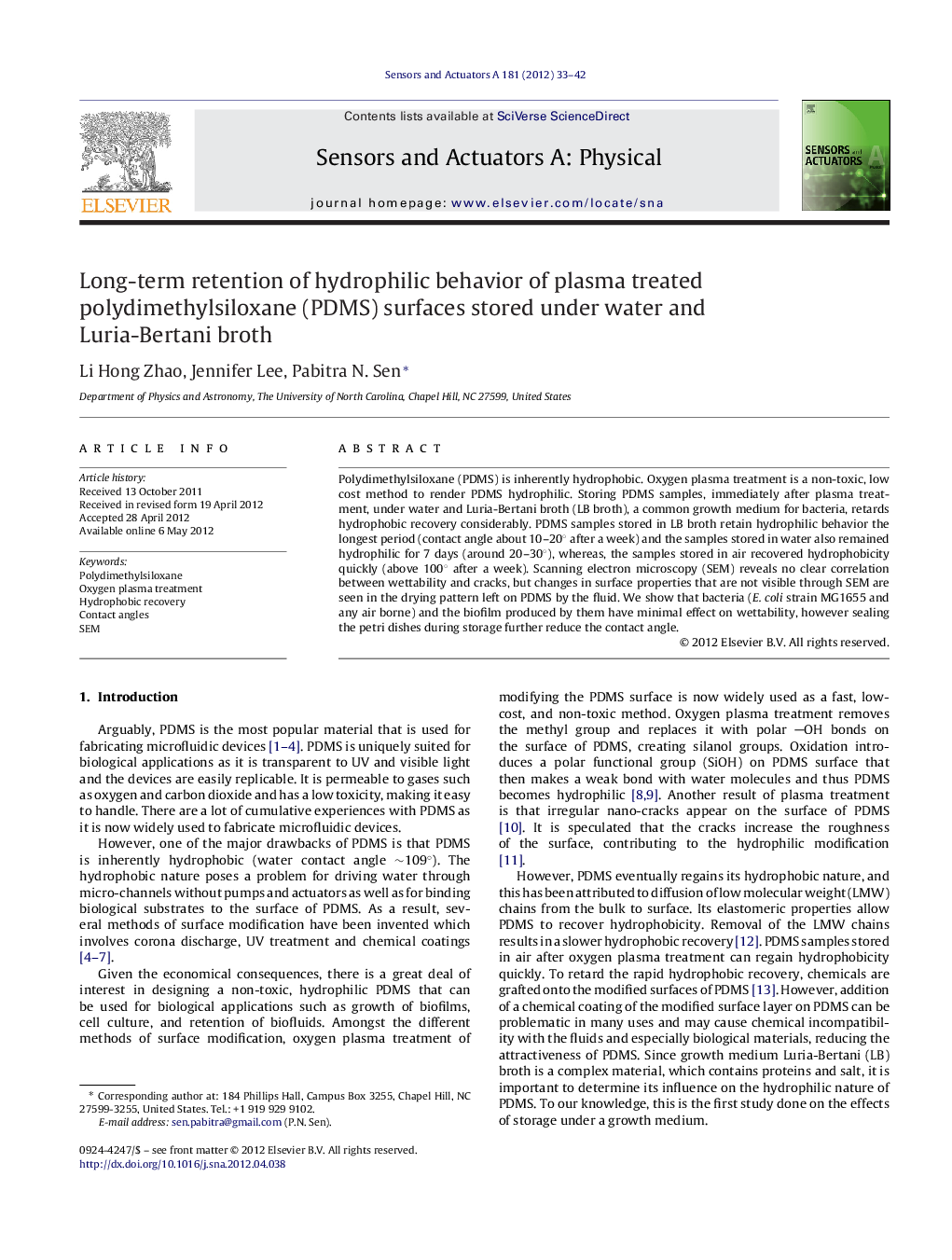| Article ID | Journal | Published Year | Pages | File Type |
|---|---|---|---|---|
| 737427 | Sensors and Actuators A: Physical | 2012 | 10 Pages |
Polydimethylsiloxane (PDMS) is inherently hydrophobic. Oxygen plasma treatment is a non-toxic, low cost method to render PDMS hydrophilic. Storing PDMS samples, immediately after plasma treatment, under water and Luria-Bertani broth (LB broth), a common growth medium for bacteria, retards hydrophobic recovery considerably. PDMS samples stored in LB broth retain hydrophilic behavior the longest period (contact angle about 10–20° after a week) and the samples stored in water also remained hydrophilic for 7 days (around 20–30°), whereas, the samples stored in air recovered hydrophobicity quickly (above 100° after a week). Scanning electron microscopy (SEM) reveals no clear correlation between wettability and cracks, but changes in surface properties that are not visible through SEM are seen in the drying pattern left on PDMS by the fluid. We show that bacteria (E. coli strain MG1655 and any air borne) and the biofilm produced by them have minimal effect on wettability, however sealing the petri dishes during storage further reduce the contact angle.
